May 21, 2025 | 16:52 GMT +7
May 21, 2025 | 16:52 GMT +7
Hotline: 0913.378.918
May 21, 2025 | 16:52 GMT +7
Hotline: 0913.378.918
If Binh Duong is the land of high-tech agriculture, then U&I Agriculture Joint Stock Company (Unifarm) is one of the pioneering businesses in this field.
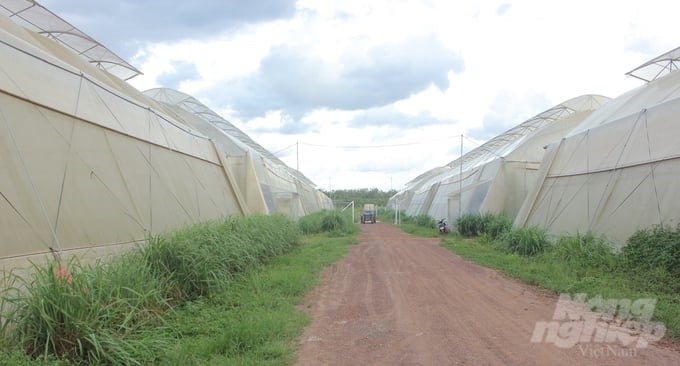
The greenhouse system for high-tech organic banana production at Unifarm. Photo: Tran Trung.
Unifarm was born nearly 15 years ago. At that time, the concept of high-tech agriculture was still quite new. Everyone admired when the business launched the model of growing cantaloupe in the greenhouse. Although fruit has passed its heyday, when mentioning it, people immediately think of Unifarm.
Along with cantaloupe, banana is also one of this company's main products, with a farming area of up to hundreds of ha. With international quality, the "Unifarm Banana" brand has created prestige among consumers in demanding markets. At the same time, creating a great reputation and competing fairly with leading banana exporting countries such as the Philippines and Panama.
It is no coincidence that Vietnamese bananas are accepted internationally. Behind quality and even bananas is the effort of workers, with the assistance of high technology.
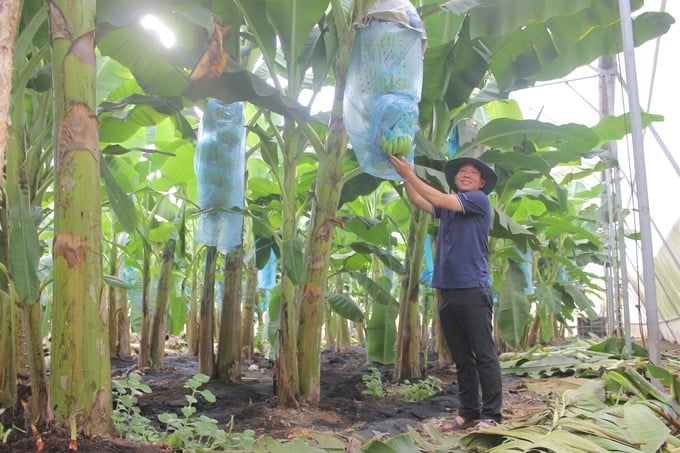
Mr. Phan Minh Tiep was excited when introducing the results of growing bananas in the greenhouse. Photo: Tran Trung.
Coming to Unifarm, everyone is unfamiliar with the image of bananas "flying" on pulleys running around the farm to bring hundreds of tons of plump bananas from the growing area to the pre-processing area. And this business is developing a bolder project, which is growing bananas in the greenhouse towards a circular green economy. The model is unprecedented because everyone thinks the banana tree is an easy-going crop.
Following engineer Phan Minh Tiep, Deputy Director of Phu Giao Branch (Unifarm), to visit the greenhouse of about 2,000 m2, we went from one surprise to another with straight rows of bananas, towering muscular trunks, and bunches of 12–15 round hands of bananas waiting to be harvested.
According to Mr. Tiep, for the exported old South American banana variety, each hectare requires an average of over 60 m3 of water/day and must be watered continuously for 6 months in the dry season to maintain stable humidity. Besides, this banana variety is very susceptible to fungal diseases, making plant protection very difficult. To meet export standards for bananas, it requires an extremely rigorous production process.
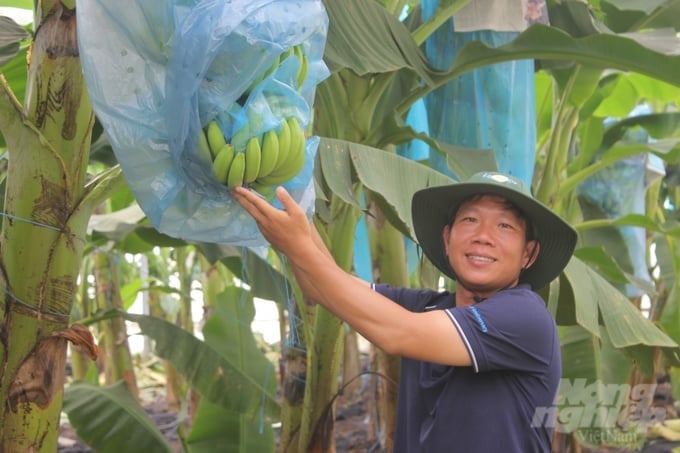
Unifarm's unique model of growing bananas in the greenhouse. Photo: Tran Trung.
"Even though Unifarm was oriented towards organic production many years ago, in early 2023, the unit began mass production of about 20 ha in the greenhouse. The results show that the banana tree has fully promoted the variety's superior features, grown well, and produced quality products with beautiful designs thanks to avoiding rain, maintaining stable humidity, and limiting pests, insects, and fungi. Along with the greenhouse system, irrigation with smart technology is both economical and proactive. The banana tree management process based on digital data helps optimize the care and production processes," Mr. Tiep shared.
Unifarm also spends 1 ha of greenhouse space on applying circular green economic solutions such as earthworm farming to help balance the ecosystem, optimize production costs, and minimize impact on the environment. In particular, this area also implements many creative solutions to take advantage of available by-products and waste products in the garden combined with biological preparations for composting, extracting banana enzymes, etc. to create organic banana products.
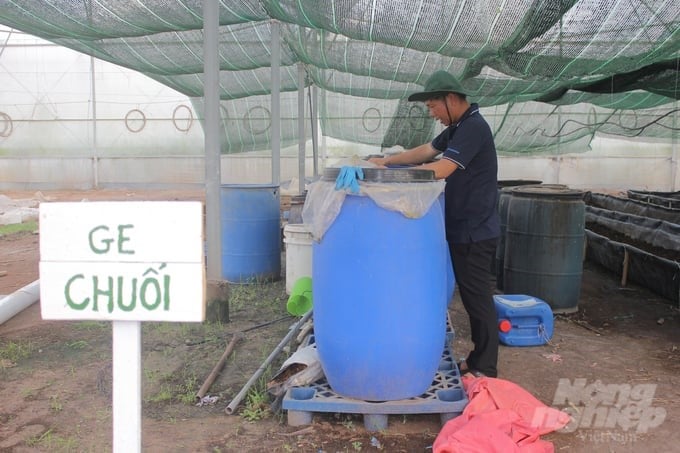
Unifarm applies many creative solutions to compost and extract banana enzymes to meet green, closed circular production. Photo: Tran Trung.
Even though it took 14 years to learn from many countries developing high-tech agriculture, such as Israel, the US, Japan, etc., Unifarm has policy of "not hiding technology" to accompany people to increase the value of Vietnamese bananas.

The banana bunches are carefully selected by Unifarm before being brought to the pre-processing area. Photo: Tran Trung.
As evidenced, Unifarm currently has nearly 30 individuals, units, and farms collaborating together. The company supports farming techniques, transfers technology, and consumes products. Besides, Unifarm has created stable jobs for more than 500 workers in the locality and from other provinces and cities. Most farmers who come to the farm after the "retraining" process adapt to the new working environment and style. From there, they will become "technological farmers" of the company or return to contribute to the locality.
According to Mr. Pham Quoc Liem, General Director of Unifarm, cantaloupe grown by Unifarm since 2010 has contributed to knocking Chinese cantaloupe out of the Vietnamese market, affirming the value of Vietnam's agricultural products. Unifarm's banana products have also been successfully exported to demanding markets such as South Korea and Japan, with prices on par with bananas imported from countries with a long tradition of banana growing, such as Ecuador and the Philippines.
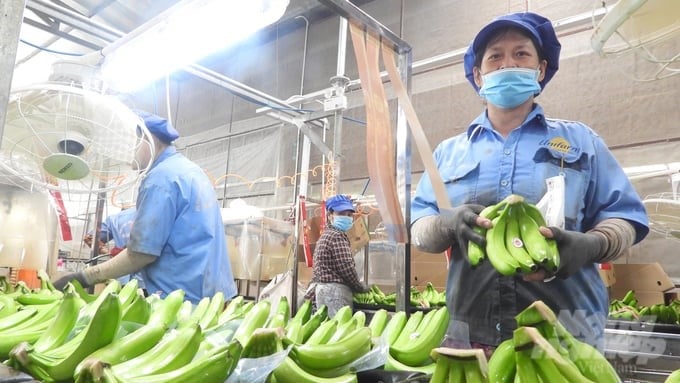
With outstanding quality, Unifarm bananas compete fairly with leading banana countries in the world, such as the Philippines and Panama. Photo: Tran Trung.
Mr. Pham Quoc Liem said that Vietnamese farmers have the ability to create quality agricultural products, meeting the strict requirements of some countries' markets. However, domestic agriculture has not been able to promote and bring high value to farmers because from the growing, caring, and harvesting stages to the transportation stage, the products do not meet the requirements or the costs increase, causing very low profits to farmers.
"Unifarm has coordinated with local governments and functional sectors to share experiences and find opportunities for cooperation and technology transfer so that people can truly receive worthy values," Mr. Liem shared.
Previously, the company's banana production area was covered with white sand and had only grass and wind. However, with unremitting efforts, this place has transformed into vast banana fields. The change that Unifarm wishes to create is not only the quality of the bananas but also the change in the lives of the people here. In addition to job opportunities, they are also exposed to other values and have access to a better life.
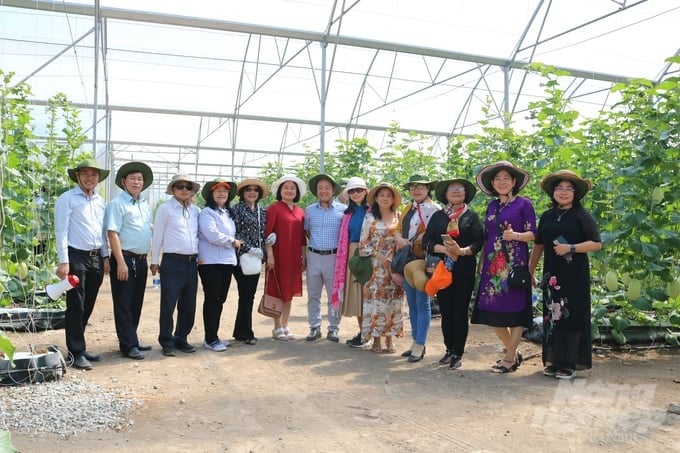
General Director of Unifarm Pham Quoc Liem (middle) shares production experience with partners and scientists when they visit the company. Photo: Tran Trung.
"Unifarm does agriculture not to replace the role of farmers, but to build good models of agriculture with a closed value chain from product selection, technology, and production to logistics organization and market exploitation so that the product can compete with any country that is producing products of the same type. With my current approach, I believe that the future is coming very close," excitedly said Mr. Liem.
Banana is a crop that accounts for 19% of Vietnam's fruit tree area, with an estimated output of 2 million tons/year, and is in the top 10 major export products (expected to reach USD 300 million this year). According to experts, to export bananas more successfully, more efforts from production units are needed. If produced according to standards, even if the market is difficult, importers will still come.
Translated by Thu Huyen
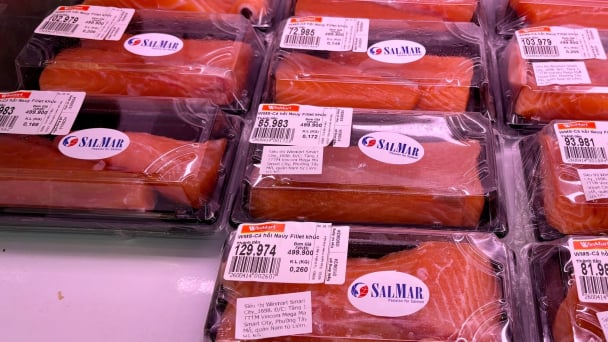
By minimizing waste, embracing modern technology, and expanding into niche markets, SalMar - the second largest producer of Atlantic salmon in the world has built a successful strategy to conquer the global market.
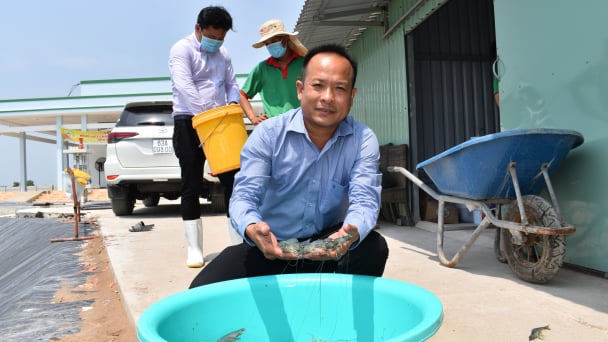
(VAN) One of the key factors for businesses to effectively take advantage of tariff preferences under these FTAs is the rules of origin.
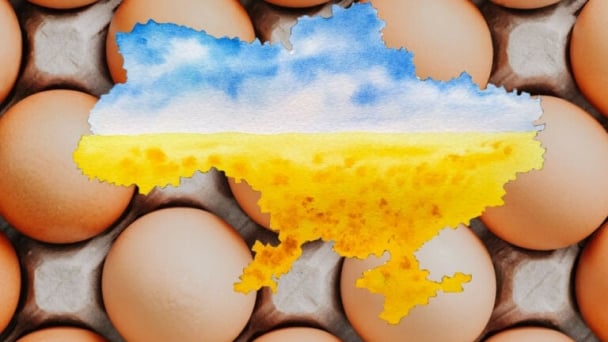
(VAN) Oliyar, a prominent Ukrainian oil and fat manufacturer, has revealed plans to build a farm for 2.3 million laying hens in the Lviv region. The additional production quantities promise to change the competitive landscape of the egg market of the Eastern Europe region.

(VAN) On May 15, Ministry of Agriculture and Environment of Vietnam hosted the 'Connecting Vietnam - Germany agricultural, forestry and fishery trade' seminar in Berlin, Germany.

(VAN) In the face of counterfeit and imitation products, Khanh Hoa Salanganes Nest Company hopes for the prompt completion of the legal framework, strict enforcement against violations, and protection of the bird’s nest brand.

(VAN) Japan's efforts to lower the price of rice through the release of its stockpile may finally be making some progress, albeit at a snail's pace.

(VAN) U.S. tariffs are not only a 'shock', but also an opportunity for Vietnamese businesses to renew their mindset toward comprehensive development.